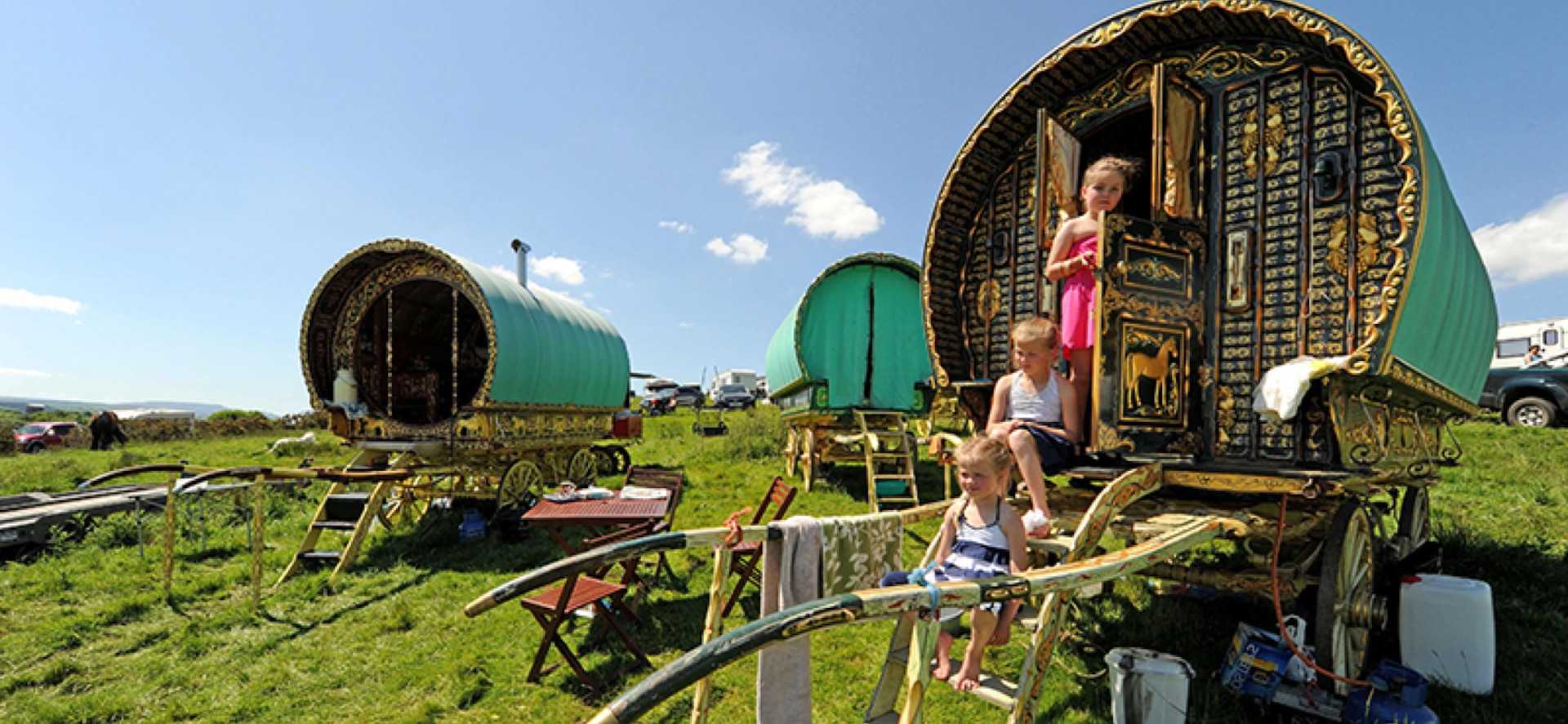

Welcome to the Traveller Movement
Events & activities.
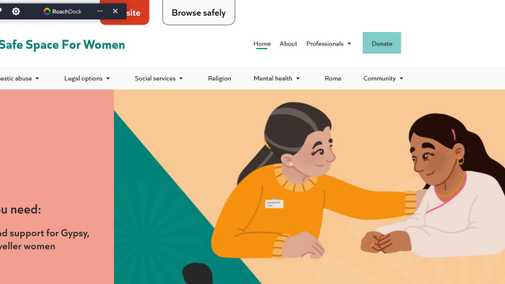
Traveller Movement Safe Space for Women Microsite
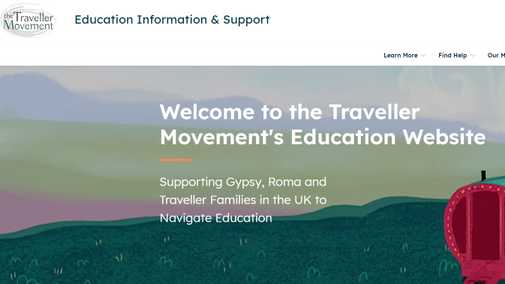
Traveller Movement Education Microsite
Traveller Movement Annual Conference: FUTURE VOICES
Thank you to everyone who attended the Traveller Movement Annual Conference 2023: Future Voices. Please find the 2023 Annual Conference Report here
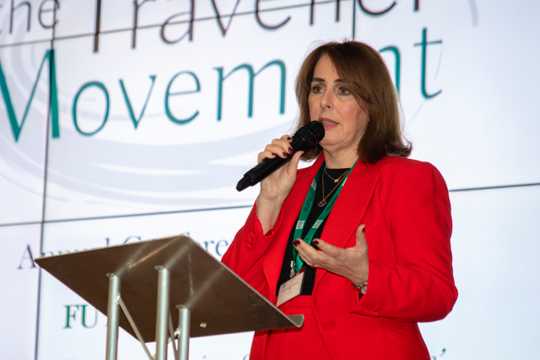
Charity Excellence Framework Quality Mark
The Charity Excellence Framework quality mark achieved by the Traveller Movement, provides demonstrable evidence to stakeholders and funders, of the Traveller Movement commitment to excellence, reassurance our trustees that our charity is well run and recognition for TM staff and volunteers for what they are achieving.

Recipe Book
This recipe book has both tradition and modern, sweet and savoury Traveller and Gypsy recipes from our Facebook group ‘Traveller and Gypsy Recipes and Tips’!

The Way We Work
Community Corner
Read all about the events, news updates and upcoming talent happening in your area!
Information and Support
We have a variety of helpful guides and useful information that will provide you with the support you need
Training and Consultation
We offer professional training and resources to Romani (Gypsy), Roma and Irish Traveller service providers
We address inequalities and discrimination that Romani (Gypsy), Roma and Irish Traveller people experience through our campaigns
- 25,000+ Overall social media followers
- 79,162 Website page views
- 1,017 Event participants this year
Testimonials
For a small organisation they punch well above their weight
Promoting a diverse range of futures for GRT members is vital in gaining greater visibility and wider societal change. The tutoring programme sounds like a great step in that direction!
Thanks so much to all involved; it was excellent training. It was eye-opening and I learned so much. The film was so powerful; I can see how much effort has gone into the film and the training.
Upcoming events
Connected communities big conversation external link icon.
Inspirational community speakers, examples of replicable strategies from Local Authorities & a showcase of best practice from the UK …
Advice Worker Forum In-Person Meeting External Link Icon
In celebration of GRTHM, we are inviting all members of the Advice Worker's Forum to an in-person event on Tuesday 25th June. …
Operation Traveller Vote Launch Event with the Electoral Commission External Link Icon
Join the Traveller Movement and the Electoral Commission for the official launch of Operation Traveller Vote 2024. …
The Traveller Movement - Paper Flower Making Workshop - 22nd June External Link Icon
Join us for a craft workshop on Saturday 22nd June between 11 AM and 3 PM as we learn how to make paper flowers …
Latest blogs

We are hiring!
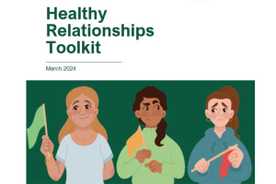
A TOOLKIT BY THE COMMUNITIES FOR THE COMMUNITIES

2023 Annual Conference Report released
Current campaigns.
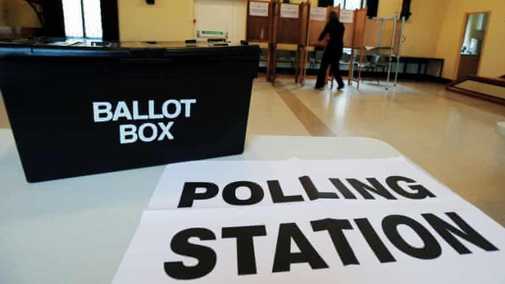
The Traveller Movement launched #OperationTravellerVote to ensure Gypsies, Roma and Travellers are registered to vote and most importantly, have their voices heard during elections.
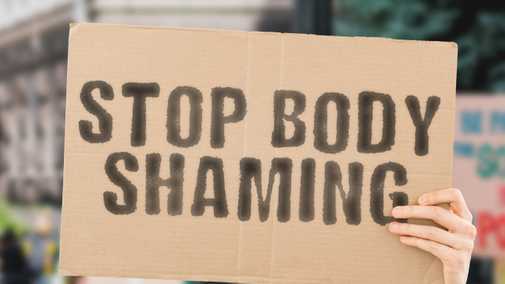
Stop Shaming
We challenge ‘shaming’ as the rise of social media channels allow public humiliation to persist which has been particularly harmful to young women
Subscribe to our newsletter
Regulation UK261
- UK261 vs EU/EC261
- Countries Where UK261 Works
- Flight Delay
- Flight Cancellation
- Denied Boarding
UK Air Passenger Rights Guide
How to claim UK flight delay compensation online? What to do if your flight is cancelled? Learn all about Regulation UK261. It’s a guide for all UK travellers, everyone travelling to or from the UK and everyone flying with UK airlines.
What Happened With Your Flight?
My flight was delayed for more than 3 hours, my flight was cancelled, i missed a connecting flight (not my fault), i was denied boarding due to overbooking.
The UK left the EU at the end January 2020. And even though EC 261/2004, or in other words EU Flight Compensation Regulation, doesn’t apply to many UK flights anymore, you are still protected. Because the UK Government has written Regulation 261 into UK law – Regulation UK261 . If your flight is delayed, cancelled or overbooked you might be entitled to UK flight compensation.
You only have to know which law to refer to when submitting a compensation claim. In some situations you will be protected by the EU law, in others — UK law. And you have to file a claim.
You can claim compensation from the airline online.

How Much Can You Claim?
Please note that on our website we use cookies to enhance your experience, and for analytics purposes. To learn more about our cookies, please read our privacy policy. By clicking ‘Allow cookies’, you agree to our use of cookies. By clicking ‘Decline’, you don’t agree to our Privacy Policy.
Roma / Gypsies / Travellers in the United Kingdom
According to the 2011 Census, the number of Gypsy/Traveller/Irish Traveller is 63,200 (0.1 per cent). However, the total population of Roma (a category not used in the Census) and Travellers in the UK is estimated to be at least 200,000 – a reflection in part of obstacles to their participation in official data collection. Estimates have ranged from 120,000 (the Traveller Movement) to 150,000 – 300,000 (the Council of Europe), in part a reflection of different approaches and definitions used.
There are several different communities and ethnic groups. The traditional groups include the UK Irish Travellers, Scots Travellers (Nachins), Welsh Gypsies (Kale) and English Gypsies (Romanichals). Irish Travellers are in Northern Ireland and England. Some members of the traditional travelling communities now live in static homes. Subsequent generations have grown up in this setting, although they can still face discrimination on account of their heritage.
More recently, from the 1990s and following the accession of a number of Eastern European states to the European Union in the 2000s, many Roma have left for the UK to escape poverty and discrimination in their home countries.
There are records of Irish Travellers in England in the twelfth century. Laws were passed against them in the fifteenth century. Roma are first recorded as ‘Egyptians’ in England in 1505 but they may have already been there for some time. The Egyptians Act of 1530 banned Gypsies from England. If they did not leave the country their property would be confiscated. In 1554 this was amended to allow Gypsies to stay if they gave up their nomadic lifestyle. If they refused, they would be executed. The earliest known written example of the Romany language with an English translation dates from 1547. This was followed by over 100 Romany words and their English translation in The Winchester Confessions 1615-16 , depositions recorded by the Winchester House of Corrections. Gypsies and Travellers were banned from Scotland on pain of death in the sixteenth and seventeenth centuries. The Indo-European origin of the Gypsies, or counterfeit Egyptians as they were sometimes called, was recognized in the eighteenth century. Quaker author John Hoyland showed in his book The Gypsies , published in 1816, that the Roma were heavily discriminated against in Britain. Travellers were included in the 1891 Census. Many performed in travelling shows and some were photographers. The Sussex police kept a detailed record of Gypsy activities from 1898 to 1926.
Nomadic Gypsies and Travellers travelled more in the spring, summer and autumn months when they could get seasonal agricultural work and provide other services to rural communities. They had traditional stopping places on the edges of large towns and cities for the winter. Settled Roma had bought land for their caravans close to cities to work in industry. After the Second World War mechanization in agriculture and the more intensive use of the land forced more nomadic families to marginal land in and around urban areas. The 1960 Caravan Sites Act was directed against private permanent caravan sites, such as those of the Roma.
Local councils were obliged by the 1968 Caravan Sites Act to allocate sites for the Gypsies and Travellers in their area and it became a criminal offence for the travelling community to live on unauthorized sites. This encouraged local authorities to move Travellers on in order to reduce their liability. Conditions attached to the sites they provided included a ban on keeping animals or trading, thus destroying the traditional Traveller way of life and source of income. More sites were set up when central government provided grants for this purpose in 1980. However, in the 1980s the greater numbers of New Age Travellers produced a backlash of opinion in the general public, which resulted in the 1994 Criminal Justice and Public Order Act. This removed the councils’ duty to provide sites, allowed them to dismantle existing sites, and also gave the police greater powers to impound vehicles and evict people. Gypsies and Travellers were advised to buy land but the majority of their planning applications were rejected.
Lobbying and legal challenges from the Traveller community resulted in central government guidance in 1998 requiring a more sensitive approach from the authorities regarding unauthorized camp sites. Further guidance was issued in 2004 following consultation with Traveller representatives. The 2004 Housing Act required local authorities to adopt a strategy for providing sites for Travellers and Gypsies.
This was, however, watered down by the 2016 Housing and Planning Act which replaced it with a more general duty to assess the need for caravan sites as part of a broader assessment of mainstream housing requirements. This change was preceded by another initiative which is proving to have very negative consequences. In the 2015 Planning Policy for Traveller Sites, the definition of ‘Gypsies’ and ‘Travellers’ was changed, excluding those who have stopped travelling permanently. By 2019, this change had led to a 75 per cent decrease in the number of sites assessed as necessary by local planning authorities; this figure was based on research conducted in a representative sample of 20 randomly selected local planning authorities. Romany Gypsies were recognized as a distinct ethnic group under the 1976 Race Relations Act. Irish Travellers were accorded this status in 2000.
More recently, the communities have been targeted by right-wing political groups. The British National Party promised to evict Travellers in its 2004 local election campaign, and there have been racist attacks on camp sites.
While some improvements to the legal protections of these communities were put in place – the Security of Tenure Bill for Gypsies and Travellers on local authority camp sites was introduced to Parliament in July 2006, and legal reform to give Gypsies and Travellers equal opportunities in Scotland was introduced in 2005 – their situation has remained precarious. In May 2007, families of Travellers lost their High Court case, over plans to move them from their East London site, to make way for the 2012 Olympic village. Some of the families had lived in the area for over two decades. The judge in the case ruled that the Travellers had not had their human rights breached by the decision to move them to new sites elsewhere in London.
Another high-profile incident occurred in October 2011 at Dale Farm, where around 80 families settled without authorization within an established Traveller community were forcibly evicted.
Significant numbers of Roma have migrated to the UK from the 1990s onwards, following the fall of Communism, with others arriving after the accession of various Central and Eastern European countries to the EU in 2004 and 2007.
Contrary to some representations in the media, the majority of Gypsies and Travellers live in permanent housing: 76 per cent, according to the 2011 Census. However, while the majority of the Traveller community live on authorized camp sites, some are based on public or private land, often with little access to basic services. According to the 2017 national caravan count, 16 per cent of Gypsy and Traveller caravans were in unauthorized locations – largely as a result of the lack of authorized sites. This situation, as in the case of the 2011 Dale Farm evictions, can result in tensions between Travellers and surrounding communities as well as local authorities, which argue that these settlements are in violation of planning law and therefore illegal. However, Travellers’ advocates point out that a lack of secure land effectively renders many communities homeless and at constant risk of eviction. The facilities at many sites are inadequate with the result that the Gypsy and Traveller community suffers from poor health. According to the British Medical Association, the community has the lowest life expectancy and highest child mortality rates in the UK. Ofsted has reported low levels of educational achievement and high rates of illiteracy among Traveller children on account of disrupted education and bullying from other children at school.
The lack of authorized sites has been made worse by the 2015 Planning Policy for Traveller Sites, whereby the definition of ‘Gypsies’ and ‘Travellers’ was changed. This excludes those who have stopped travelling permanently. By 2019, this change had led to a 75 per cent decrease in the number of sites assessed as necessary by local planning authorities. The figure was arrived at by studying a representative sample of 20 randomly selected local planning authorities. Only eight authorities sought to meet the needs of Gypsies and Travellers who did not meet the definition contained in the Planning Policy – resulting as the researchers said in a kind of ‘postcode lottery’. Key groups that are left out include the elderly, persons with disabilities and those with serious health conditions, who are no longer travelling but naturally wish to remain within their own communities. The lack of authorised sites also makes it harder for Gypsies and Travellers to continue travelling in order to prove their status.
These issues have only become worse with new legislation that was adopted in 2022. The new Police, Crime, Sentencing and Courts (‘PCSC’) Act. The law makes it a new criminal offence to reside with a vehicle on land without permission; penalties for those found guilty can include up to 3 months’ imprisonment. The legislation was received with considerable criticism from Gypsy, Roma and Traveller community groups along with numerous allies, who stressed that it did not address the underlying issue – namely the lack of authorized camp sites.
Despite broader shifts within the UK on how minority communities are presented, racism against Roma and Travellers remains entrenched, with a 2017 report by the Traveller Movement describing it as ‘the last acceptable racism’. This research found that almost 77 per cent of surveyed Travellers had been the targets of hate speech or hate crime, including discrimination in education and employment, with many as a result choosing to hide their ethnicity.
These inequalities are evident in social disparities across a range of areas. In educational attainment, for example, just 18 per cent of students from Irish Traveller backgrounds and 9 per cent from Roma and Gypsy backgrounds achieved five or more A* – C GCSEs in 2016, compared to 57 per cent of the population as a whole. Unemployment levels, too, are the highest of any ethnic group among Gypsies and Irish Travellers. They also are disproportionately represented in the criminal justice system.
Updated September 2022
We stand up for minority and indigenous rights. Find out how
Related content
Reports and briefings.
1 June 1992
Roma: Europe’s Gypsies
There are almost six million Roma in Europe today, yet they remain a rejected and harassed minority in almost every country in Eastern and…
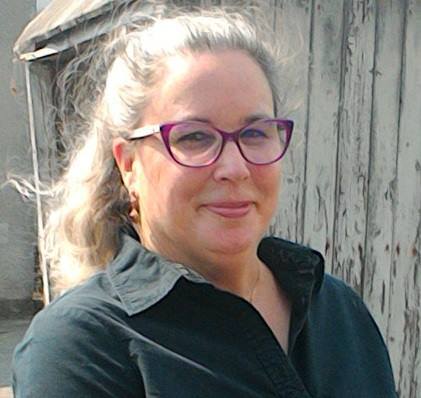
9 August 2021 • 3:00 – 5:00 pm BST
Stanislav Tomáš and the plight of European Roma – Gwendolyn Albert
In June 2021, Stanislav Tomáš, a Romani man in Teplice, Czech Republic, died after several police officers pinned him to the ground and…
Our strategy
We work with ethnic, religious and linguistic minorities, and indigenous peoples to secure their rights and promote understanding between communities.
Discover the latest insights from our global network of staff, partners and allies.
Join us for insightful discussions at webinars, screenings, exhibitions and more.
- DAS Insurance
- DAS UK Group
- Personal customers
- Commercial customers
- General enquiries
- Settlement agreements
- Where to find us
- Data requests
- How we use your data
- Your consents
Legal services for individuals
We can help with legal issues in a number of areas, including personal injuries, disputes over things you have bought, or problems at work. Have a look to see how we can help, and how you can access our services.
- Employment services
- Litigation and disputes
- Personal injury services
- Motorcycling services
- How can we help?
- Legal advice helpline
- What is legal expenses insurance?
- Get in touch
Our satisfied customers
Hear about some of the problems that we have helped to solve.
Legal services for businesses
Running a business comes with enough challenges without the added complication of legal problems. We could help you to deal with commercial and employee disputes, as well as helping you with the setting-up of your business.
How we help businesses
We have helped many businesses with their legal issues.
Company Overview
DAS Law is part of a group that has been helping individuals and businesses get access to justice for over 40 years. Our legal services are designed to be appropriate for your needs, with advice that is as clear and jargon-free as possible.
- About DAS Law
- Meet the team
- Regulatory information
- Careers at DAS Law
- DAS Law news
- DAS Law blog
Our insights can help you learn more about everyday legal issues.
- Everybody needs good neighbours. But what can be done if someone refuses to be neighbourly?
- Don’t let your private hedge be a hazard to public footpaths
- Make sure your car is safe when you use valet parking
- Faulty products face recalls – these are your rights when things go wrong
- Airbnb and holiday lettings: What to do with the staycation boom
- Don’t get flushed away by sewage companies. Learn how to claim compensation.
- 10 top TUPE tips for employers – Transferors
- What employers need to know about performance management and grievances
- Managing absence – an employer’s perspective
- Employee, self-employed or worker? – The Bitesized Edition
- Workplace stress: your responsibilities as an employer
- International Stress Awareness Month: your workplace rights
Rights of Travellers
There are laws in place that have a direct effect on the lives of Gypsies and Travellers, some which work in their favour and some which do not.
Caravan Sites
Gypsies and Travellers have historically been nomadic, and in recent years they have tended to make caravan sites their homes. This has been allowed, most notably by the Caravan Sites Act 1968, which made all county councils duty-bound to provide caravan sites for Gypsies and Travellers.
However, many county councils didn’t comply with this duty, and the duty was subsequently repealed by the Criminal Justice and Public Order Act 1994. This act also gave police the power to evict Gypsies and Travellers who park their caravans on other sites without authorisation.
County councils are still allowed to provide special caravan sites for Gypsies and Travellers under the Caravan Sites and Control of Development Act 1960, but not many public authorities do so.
Eviction and security of tenure
Travellers have more protection from eviction than you might think. Legal advice should be sought if needing to evict travellers from your land.
Racism and discrimination
Certain types of Traveller, such as Romany Gypsies and Irish Travellers, have successfully proven themselves to be a protected ethnic minority in the past, and as such, have the right to be free from racial harassment and discrimination. This gives Gypsies and Travellers the same protection from discrimination that all other ethnic minorities receive under UK and European human rights law.
There are certain situations in which indirect discrimination against Gypsies or Travellers could be allowed – for instance, if registration with a school or another organisation required applicants to have a fixed address, thereby disqualifying Gypsies and Travellers due to their way of life.
However, this kind of treatment is only acceptable if the organisation has a justification, beyond simply wishing to exclude Travellers.
Human rights to education
Regardless of how they live, Gypsies and Travellers are of course entitled to the same human rights that everyone under the umbrella of the European Convention on Human Rights has.
For instance, young Gypsies and Travellers are as entitled to an education as any other child before school leaving age – in fact, failure by a parent to ensure that their child gets a good education would constitute breaking the law.
However, the law recognises that a regular school education would be very difficult to access for a Traveller, their nomadic lifestyle being inherently incompatible with the idea of settling at a school for an extended period of time.
Most local councils have a Traveller Education Service operating in the area, which works to provide support for Travellers and ensure that their children can get a good education. Like all parents, Gypsies and Travellers also have the option of educating their children themselves, away from school.
However, if the local education authority is not satisfied that the child is receiving an adequate education, they can take action, such as serving a school attendance order (requiring the child to attend a school) or an education supervision order (assigning an education social worker to work with the parent and child, making sure that the child is being educated to a reasonable standard).
What you need to know about redundancy
The Rehabilitation of Offenders Act
Read more from the DAS Law blog
Sahib Ullah Raj, a legal adviser at DAS Law, delves into the common quarrels that can arise between neighbours and outlines the legal avenues available for resolution.
With 31 January deadline fast approaching, time is ticking for the UK’s 5.4m tax payers to submit their Self-Assessment tax returns.
Corey Evans, Associate at DAS Law clarifies the legal position around damage caused by potholes and the possible repercussions for those who seek to resolve them themselves.
Charlotte Ellis. Legal Adviser at DAS Law, looks at the rules surrounding the office Christmas party.
Halloween is generally a ‘spooktacular’ time for all but a few bad apples can spoil the fun. So what can you do if someone chooses to play a trick and damages your property?
Where does the law stand on the use of facial recognition software? Elisa Ribeiro, legal adviser at DAS Law, tells you what you need to know.
Breaking any speed limit (including temporary speed limits) is an offence, and it is the driver’s responsibility to be aware of the law.
As the emphasis on electric vehicles (EVs) increases and the technology behind automated vehicles evolves, the Highway Code has been updated to include key guidance on the new types of vehicles on our roads.
Many people across the UK will be celebrating the Queen's Jubilee with a fun-filled street party, but what do you need to consider in preparation for the big day?
Legal adviser Chloe Williams explains how much we know about how the app works and what happens to the personal information we share.
Universities have switched to online lectures and some campuses are imposing strict social distancing measures – what rights do students have?
E-scooters may have become commonplace on our streets over the last few years but technically they are illegal…that is until now, sort of. But what do owners and riders need to know?
Where does the law stand on helmets, safety cameras and cycling offences? Chloe Williams, Legal Adviser from DAS Law, has the answers.

Suggestions
Gypsies and Travellers protection from eviction
Eviction rules depend on whether Gypsies and Travellers are staying on their own land without planning permission, private land or a council site.
Occupation rights for Travellers on their own land
Travellers using their own land as a caravan site without planning permission risk being removed from that land.
Eviction of Travellers from council sites
The powers of local authorities to provide sites for Gypsy and Travellers, and the rights of occupiers of such sites.
Eviction from land not owned by Travellers
The steps different landowners can take to try and remove travellers, including under common law trespass and the Criminal Justice and Public Order Act.
Judicial review and human rights defences for Gypsies and Travellers
A Gypsy or Traveller might raise a public law defence against a public authority on conventional judicial review grounds or a breach of human rights.
Local authority duties towards homeless Gypsies and Travellers
Local authorities' duties towards homeless Gypsies and Travellers, and the legal definitions of Gypsies and Travellers.
We use cookies to make sure that you get the best experience on our website. By closing this message, you consent to having our cookies on this device as set out in our cookie policy , unless you have disabled them.

If we’ve helped you, could you help us?
We urgently need to improve this website so more people can find the help they need. We need better SEO and more user-friendly design.
We could start now if everyone who used our help this month gave £2
Thank you - Advicenow
- Skip to content
- Accessibility Help
Find the best information
The rights of travelling people. Includes your rights to stop legally, park and live in a camp, and how to access services such as healthcare and education.
Information provided applies to England & Wales
Top picks a quality controlled selection of all the best legal information from a wide range of providers hand picked from the best websites by advicenow, gypsies and travellers.
Gypsies and Travellers have different rights depending on whether they are staying on a council site, an unauthorised site, or a private site. Links to information about when and how gypsies and travellers can be evicted from land they have stopped on. (Content applies to England only.)
Gypsy and Traveller sites
Gypsies and travellers have different rights depending on whether they are staying on a council site, an unauthorised site, or a private site. Information on what these rights are. (Content applies to England only.)
A short guide to the Policing Act 2022
Information for anyone currently living or planning to live roadside on police powers on roadside camps.
Eviction from a site: Gypsy and Traveller communities
There are different eviction rules depending on the type of site you are staying on. Explains the rules in different situations.
Evictions from authorised sites
Guide to eviction for gypsies and travellers, covering evictions from public land, private land and by planning authorities. Includes contact details for the Traveller Advice Team.
Help if you’re homeless: Gypsies and Travellers
Gypsies and travellers are entitled to help from the council if they have nowhere safe and permanent to live. This page looks at your rights in those circumstances. (Content applies to England only.)
Report racism and discrimination
Explains types of hate crime, harassment and discrimination faced by gypsies and travellers, and how this can be challenged in law. Provides case study examples and further contact details for more advice and information.
Need more help?
- Login to your account
- Going to court
- Help with Family Problems
- Help with Benefit Problems
- Help with Housing Problems
- Help with problems at work
- How to sue someone
- Living together
- Help for Roma families
- Advicenow Guides
- Help Directory
- Our other work
New anti-Traveller laws set to criminalise nomadic way of life
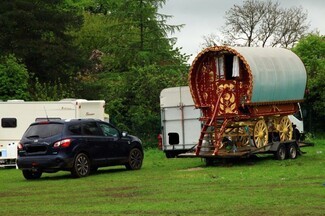
The Government has announced new laws that will make trespass with vehicles a criminal offence – in a move that has caused fury among Gypsy and Traveller campaigners.
The Home Secretary, Priti Patel, said yesterday, that the new laws will target trespassers “who intend to reside on any private or public land in vehicles without permission, and where they are causing significant disruption, distress or harm to local communities.”
“This new offence will enable the police to fine or arrest those residing without permission on private or public land in vehicles in order to stop significant disruption, distress or harm being caused to the law-abiding majority,” she added.
The new law also gives the police the powers to seize and impound vehicles whose owners fail to comply with the new law and who refuse – or can’t – leave.
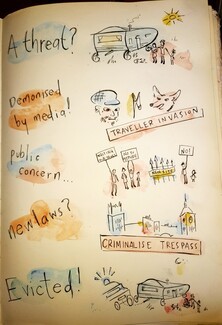
Gypsy and Traveller campaigners reacted with fury saying that the new laws were racist.
“You are criminalising a problem that has been created by the failings of a political will to deliver appropriate accommodation,” said Joseph P Jones from the Gypsy Council, in a Facebook comment left on Priti Patel’s Facebook page .
Joseph P Jones also pointed out that to get planning permission to develop their own permanent legal Traveller site, Gypsies and Travellers have to obtain ‘gypsy status’ , the only requirement of which is to prove that they are – and will - continue to travel.
“Travellers are told they have to prove they travel to gain planning permission for their own private sites,” he added.
“But locally, Councils refuse to provide public sites. Well, racism is alive and well in the Home Office. Through political failure. Be proud of your right-wing achievement.”
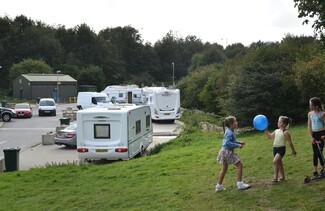
The Government say that the new offence of criminal trespass will target:
- A person aged 18 or over resides or intends to reside on land without consent of the occupier of the land;
- They have, or intend to have, at least one vehicle with them on the land;
- They have caused or are likely to cause significant damage, disruption or distress;
- Fail to leave the land and remove their property following a request to do so by an occupier of the land, their representative or a constable; or
- Enter or, having left, re-enter the land with an intention of residing there without the consent of the occupier of the land, and with an intention to have at least one vehicle with them, within 12 months of a request to leave and remove their property from an occupier of the land, their representative or a constable.
- Reasonable suspicion that a person has committed this offence confers power on a constable to seize their vehicle/other property for up to three months from the date of seizure or, if criminal proceedings are commenced, until the conclusion of those proceedings.
The new law will affect England and Wales - but not Scotland.
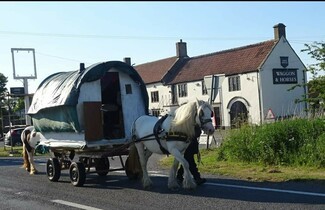
Responding to the news, Abbie Kirkby, Public Affairs and Policy Manager at Friends, Families and Travellers said :
“The Government seems hell bent on introducing tougher police powers for people living on roadside camps, even though all the evidence is stacking up against them – in their own consultation it is clear that most respondents don’t want tougher powers. The views of the majority of consultation respondents have been ignored, opening the door to a harsh and unfair set of proposals which punish some of the UK’s minority ethnic groups, who already face some of the starkest inequalities.
Our research shows that the majority of police respondents are against the proposals and also that there is a chronic national shortage of places to stop. The Government should not imprison people, fine them and remove their homes for the ‘crime’ of having nowhere to go. Another way is possible. Through negotiated stopping and by identifying land where Traveller sites can be built, councils can ensure nomadic families have a safe place to stop, save money on evictions and improve relations between travelling and settled communities. Everybody needs a place to live.”
Responding to the proposals, Jenny, a Romany Gypsy, said:
“My daughter is trying to get a pitch, but loads of families trying, she’s feeling depressed. Her and her partner don’t know where they’re going to go. It’s not right to criminalise us all. We don’t leave any rubbish, we respect the other residents, we clean up after ourselves, but we’re going to be stopped from travelling. There aren’t enough sites for Travellers. We’re being treated like animals. They’re always building more houses but no more sites. She can’t get a site, she can’t stop on the road. She’s tearful, she’s crying a lot. She just wants to settle down and make a life for herself like anyone else.”
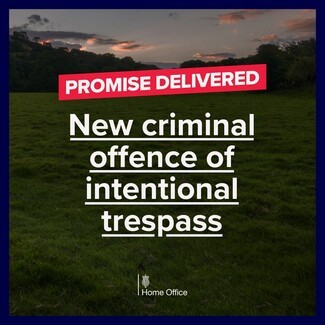
TT EDITORIAL
The laws are pretty much what campaigners were fearing and what was promised in the Conservative manifesto at the last election - the criminalisation of trespass with vehicles.
By focussing on vehicles the Government has side-stepped opposition from ramblers and homeless charities. However that makes the new laws easier to challenge under equalities laws as Romany Gypsies and Irish and Scottish Travellers are protected ethnic groups. We understand that lawyers are already geared up to challenge the new laws.
The surprise is that the number of vehicles needed to trigger the new laws has dropped from the promised two to one. This then brings lots of the new single vehicle 'van-lifers' parking up on private or public land within the scope of the new law.
On the face of it, the new laws are only triggered if the senior police officer attending the camp believes that the camp "has caused or are likely to cause significant damage, disruption or distress."
However, "likely to cause" is open to wide interpretations and the powers, and the resulting seizure of vehicles if the camp refuses to disband, will be reliant on the whims and prejudices of the police officers present - and some police officers are more racist than others...
Mike Doherty/TT News
(Main picture: Stock image from Stow Fair (c) Natasha Quarmby)
Cookies on GOV.UK
We use some essential cookies to make this website work.
We’d like to set additional cookies to understand how you use GOV.UK, remember your settings and improve government services.
We also use cookies set by other sites to help us deliver content from their services.
You have accepted additional cookies. You can change your cookie settings at any time.
You have rejected additional cookies. You can change your cookie settings at any time.
Register to vote Register by 18 June to vote in the General Election on 4 July.
- Visas and immigration
- Travelling to the UK
Registered Traveller: faster entry through the UK border
Eligibility.
To apply for Registered Traveller membership, you must be 18 or older and have an eligible passport.
You must also either:
- have a UK visa or entry clearance
- have visited the UK at least 4 times in the last 24 months
It counts as visiting when you enter the UK from another country. It does not count if you’re just passing through the UK on your way to another country.
Eligible passports
Botswana, Seychelles.
Brunei, Hong Kong (Special Administrative Region passports only), Macao Special Administrative Region, Malaysia, Maldives, Taiwan (if your passport has a personal ID number on the photo page).
Andorra, Monaco, Vatican City State.
Middle East
North america.
Bahamas, Mexico, Saint Vincent and the Grenadines.
Nauru, Papua New Guinea, Samoa, Tonga.
South and Central America
Argentina, Belize, Brazil, Chile, Costa Rica, Guatemala, Nicaragua, Panama, Paraguay, Trinidad and Tobago, Uruguay.
Related content
Is this page useful.
- Yes this page is useful
- No this page is not useful
Help us improve GOV.UK
Don’t include personal or financial information like your National Insurance number or credit card details.
To help us improve GOV.UK, we’d like to know more about your visit today. Please fill in this survey (opens in a new tab) .
UK Edition Change
- UK Politics
- News Videos
- Paris 2024 Olympics
- Rugby Union
- Sport Videos
- John Rentoul
- Mary Dejevsky
- Andrew Grice
- Sean O’Grady
- Photography
- Theatre & Dance
- Culture Videos
- Fitness & Wellbeing
- Food & Drink
- Health & Families
- Royal Family
- Electric Vehicles
- Car Insurance Deals
- Lifestyle Videos
- UK Hotel Reviews
- News & Advice
- Simon Calder
- Australia & New Zealand
- South America
- C. America & Caribbean
- Middle East
- Politics Explained
- News Analysis
- Today’s Edition
- Home & Garden
- Broadband deals
- Fashion & Beauty
- Travel & Outdoors
- Sports & Fitness
- Sustainable Living
- Climate Videos
- Solar Panels
- Behind The Headlines
- On The Ground
- Decomplicated
- You Ask The Questions
- Binge Watch
- Travel Smart
- Watch on your TV
- Crosswords & Puzzles
- Most Commented
- Newsletters
- Ask Me Anything
- Virtual Events
- Betting Sites
- Online Casinos
- Wine Offers
Thank you for registering
Please refresh the page or navigate to another page on the site to be automatically logged in Please refresh your browser to be logged in
‘Do not travel’ alert issued after freight train derails on major route between England and Scotland
Problems made worse on northern trains by landslip between newcastle and carlisle, article bookmarked.
Find your bookmarks in your Independent Premium section, under my profile
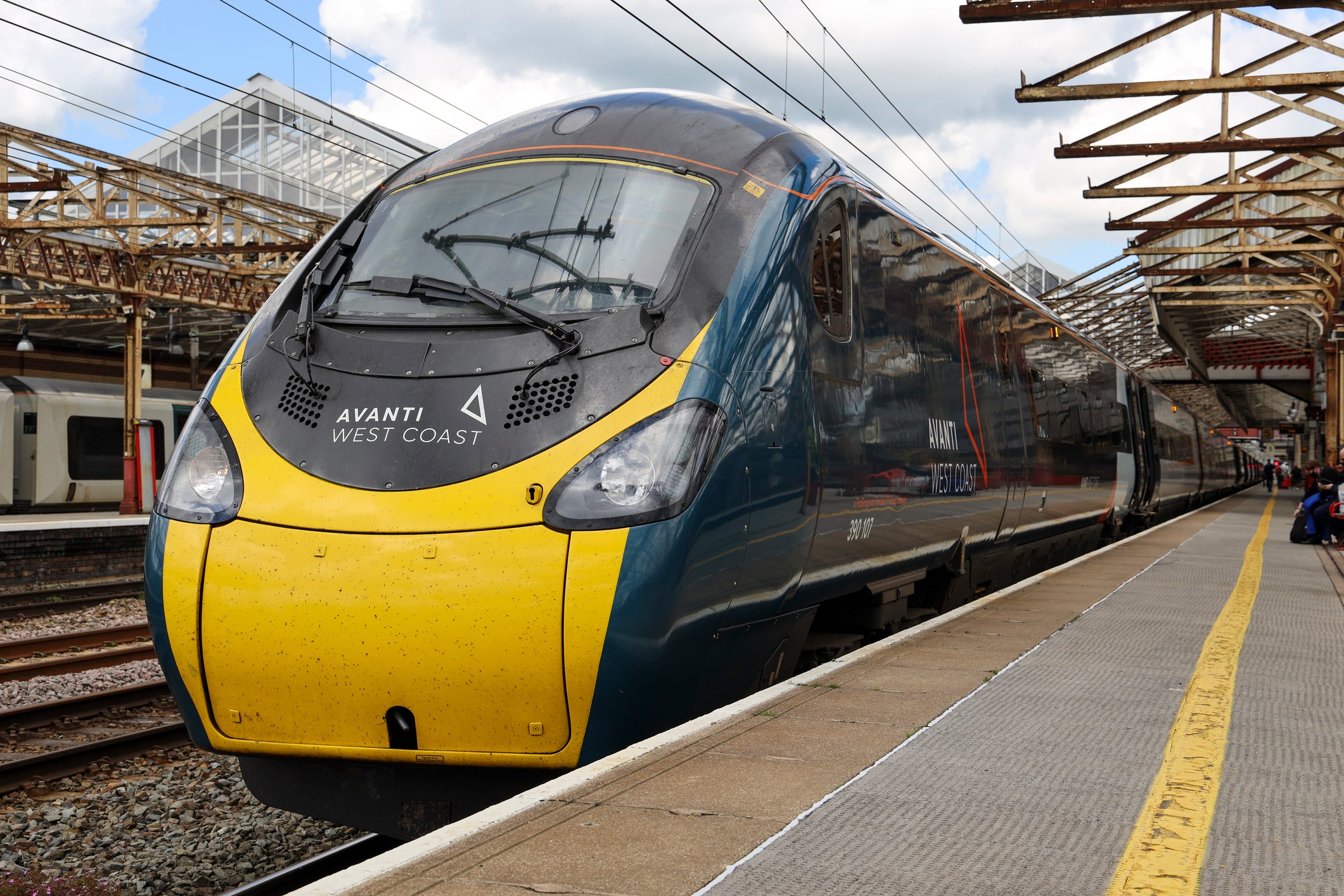
Sign up to Simon Calder’s free travel email for expert advice and money-saving discounts
Get simon calder’s travel email, thanks for signing up to the simon calder’s travel email.
A “do not travel” alert has been issued after a freight train derailed on a major route between England and Scotland .
Services are being cancelled and delayed because of the incident on the West Coast Main Line between Carlisle and Oxenholme Lake District on Wednesday night, National Rail Enquiries added.
Nobody was injured during the derailment half a day later there are still major delays for travellers.
Some lines are blocked and a very limited train service is running on the line that remains open.
Rail companies have warned of knock-on effects for the rest of the day.
Train operators Avanti West Coast and TransPennine Express issued the “do not travel” alert, urging passengers not to attempt to use their services for journeys between Preston and Scotland on Thursday.
Ticket holders can delay journeys until Friday or travel with other operators. This includes on LNER services between Edinburgh and London Kings Cross, CrossCountry trains between Edinburgh and Birmingham New Street, TransPennine Express via “any reasonable route”, and ScotRail between Glasgow and Edinburgh, Avanti West Coast said.
The operator told concerned would-be travellers on social media that if they chose not to travel, they could claim refunds.
Avanti West Coast also dismissed reports that trains should run without problem after 2pm, writing on Twitter/X that “we haven’t given a time as to when this disruption is likely to end.”
Network Rail has been approached for a comment. It’s not clear what caused the derailment.
Elsewhere, buses are replacing trains between Newcastle and Hexham and Carlisle, due to a landslip in the Corbridge area, operator Northern said.
In April, train services between Reading and London Paddington were severely disrupted after a frieght train derailed on the line, leading to chaos for commuters at rush hour and causing a major impact on Elizabeth Line and Heathrow Express services.
Additional reporting by PA
Join our commenting forum
Join thought-provoking conversations, follow other Independent readers and see their replies
Subscribe to Independent Premium to bookmark this article
Want to bookmark your favourite articles and stories to read or reference later? Start your Independent Premium subscription today.
New to The Independent?
Or if you would prefer:
Want an ad-free experience?
Hi {{indy.fullName}}
- My Independent Premium
- Account details
- Help centre

UK-Rwanda migrant deal challenges international protection law
Lecturer and Senior Research Fellow at the South African Research Chair in International Law (SARCIL), University of Johannesburg
Disclosure statement
Cristiano d'Orsi does not work for, consult, own shares in or receive funding from any company or organisation that would benefit from this article, and has disclosed no relevant affiliations beyond their academic appointment.
University of Johannesburg provides support as an endorsing partner of The Conversation AFRICA.
View all partners
In late April 2024 the British parliament passed a law – the Safety of Rwanda Act – enabling it to transport migrants arriving in the UK to Rwanda. When the legislation was approved by parliament, there were 52,000 asylum seekers who could potentially be sent to Rwanda.
The law has been condemned by a range of UN actors , human rights lawyers and activists.
As a scholar of international law – with a particular focus on the protection of asylum-seekers, refugees, migrants – one of my biggest concerns is that the UK’s Safety of Rwanda act flouts one of the fundamental principles of international law: the principle of non-refoulement . The principle prohibits countries from transferring or removing people from their jurisdiction or control when there are substantial grounds to believe that they could be at risk of irreparable harm. This includes torture or other cruel, inhuman or degrading treatment.
“Substantial grounds” is determined by the host country. However, international agencies (like UNHCR) can intervene. Courts in the US interpret “substantial grounds” as a situation in which an individual “ is more likely than not ” to be at risk of irreparable harm.
Countries are obliged not to send people to countries where they could suffer harm. If they deserve asylum, refugee status should be granted. Otherwise, they should be provided with an alternative form of protection.
Opponents of the UK’s policy argue that removing asylum-seekers to Rwanda would violate this principle.
A group of human rights experts who advise the UN human rights body have already warned that airlines and aviation authorities could be at risk of violating the law by facilitating removals to Rwanda from the UK. This is because the experts believe asylum seekers could be at risk of being sent into a situation where their basic rights could be in danger.
The principle’s history
In the aftermath of the first (1914-1918) and second (1939-1945) world wars, millions of people fled their homes in search of refuge. In response, the international community steadily assembled a set of guidelines, laws and conventions aimed at protecting the basic human rights and treatment of people forced to flee conflict and persecution.
The process, which began under the League of Nations in 1921, culminated in the 1951 Convention Relating to the Status of Refugees . This provide the most comprehensive codification of the rights of refugees at the international level.
The principle of non-refoulement was first enshrined in the 1951 convention, and has since been recognised by other international legal instruments and treaties:
1967 Protocol Relating to the Status of Refugees
International Covenant on Civil and Political Rights
Convention Against Torture and Other Cruel, Inhuman or Degrading Treatment or Punishment
United Nations Declaration on Territorial Asylum
1969 OAU Convention Governing the Specific Aspects of Refugee Problems in Africa.
The principle has become a customary international norm . This means that all countries – even those that haven’t ratified all these treaties – must respect it.
Enforcing the principle
Both domestic and international courts can deal with cases. So far in Africa, only domestic courts have dealt with the infringement of this principle. In Europe, the European Court of Human Rights has intervened.
If a country is taken to court for violating the principle of non-refoulement and it loses, several consequences can follow:
Court orders and injunctions: The court may issue orders to stop deportations.
For instance, in the 2010s, Israel reached agreements that Rwanda and Uganda would accept Eritrean and Sudanese asylum seekers deported from Israel. But many asylum seekers deported to Rwanda and Uganda faced further human rights abuses. Many were left without legal status or access to basic services, forcing them into precarious situations. Israeli human rights groups filed petitions against the deportations, leading to several legal battles. In 2018, Israel’s Supreme Court temporarily blocked the deportation plan, demanding more transparency and assurances regarding the safety and rights of the deportees. Under mounting legal and international pressure, Israel eventually suspended its deportation plan in April 2018. The government had to reconsider its policies towards asylum seekers.
Compensation and redress: The country might be ordered to provide compensation to the affected individuals for any harm suffered due to the violation.
For instance, in 2011 the European Court of Human Rights forced Belgium to pay an Afghan asylum seeker €24,900 in damages and €7,350 for costs and expenses. Belgium violated the principle when it sent the asylum seeker back to Greece, knowing about substandard conditions and deficiencies in the Greek asylum system.
Reputational damage: The country may face international criticism and damage to its reputation, affecting its diplomatic relations and standing in the international community.
Sanctions: In some cases, the country might face sanctions or other penalties imposed by international bodies or courts. For instance, in 2021 the EU imposed sanctions on Belarus, partly due to its treatment of asylum seekers and migrants.
Changes to law and policy: The ruling may compel the country to amend its laws and policies to prevent future violations and ensure protection for asylum seekers and refugees.
Scrutiny: The country may come under increased scrutiny from international human rights organisations and monitoring bodies to ensure compliance with the court’s decision.
What this means for the UK-Rwanda deal
In late 2023, the UK Supreme Court found that sending people to Rwanda risked violating international treaties prohibiting refoulement. Part of the ruling read:
The central issue in the present case is [the Rwandan government’s] practical ability to fulfil its assurances, at least in the short term, in the light of the present deficiencies of the Rwandan asylum system, the past and continuing practice of refoulement…
But the UK government ignored the courty’s ruling and pressed ahead with getting the law through parliament. In a bid to manage the negative fallout from the bill, the UK government released a policy statement saying that refoulement would not happen. It said a monitoring committee would ensure compliance with the UK’s international obligations.
The Safety of Rwanda Act provides that the government of Rwanda will not remove anybody who is transferred from the UK to Rwanda, except to send them back to the UK.
The main problem is whether Rwanda’s government will follow through on its promises. There are flaws in the country’s asylum system and changes are needed in how it handles refugees.
For example, refugees in Rwanda face prejudice and discrimination and most are poor. Over 90% live in camps and rely on a meagre cash assistance of 10,000 Rwandan francs (US$7.94) a month to buy food.
Human rights organisations have also pointed out that Rwanda’s human rights record makes it no country for refugees.
Read more: Taking stock of Rwanda as a host for refugees
In addition, there have been episodes in which people have been sent back to dangerous situations. For instance, when Israel entered into a similar deal with Rwanda in 2013, thousands of people were expelled to countries of origin by Kigali without being allowed to claim asylum.
There’s a chance that, before UK asylum seekers are sent to Rwanda, they may lodge cases against the UK government claiming the risk of refoulement. This will delay their departure as courts would need to consider claims based on the person’s background and make a decision based on their circumstances on whether the threat truly exists.
Evidence might include aspects of an individual’s personal or family background, health, sexuality, or their past relationship with the authorities in Rwanda.
Whether any claim succeeds will depend on the strength of the evidence about a person’s individual circumstances and the risk they might face if removed.
- International law
- Human rights
- Refugee law
- Persecution
- Human rights violations

Data Manager

Research Support Officer

Director, Social Policy

Head, School of Psychology

Senior Research Fellow - Women's Health Services
- My View My View
- Following Following
- Saved Saved
Junior doctors in England to strike in election run-up
- Medium Text

Sign up here.
Reporting by Suban Abdulla Editing by William Schomberg
Our Standards: The Thomson Reuters Trust Principles. New Tab , opens new tab

A 9-year-old girl is fighting for her life in hospital after being shot during a drive-by shooting attack on a London restaurant where she was eating with her family, police said on Thursday.

World Chevron

Guilty on all counts, Donald Trump becomes first US president convicted of a crime
Donald Trump became the first U.S. president to be convicted of a crime on Thursday when a New York jury found him guilty of falsifying documents to cover up a payment to silence a porn star ahead of the 2016 election.

Argentina naval forces and a U.S. fleet including the nuclear-powered aircraft carrier USS George Washington carried out naval exercises on Thursday in waters off the South American nation, a show of closer ties under new President Javier Milei.
As many as three people, including a police officer, were killed and several others wounded by gunfire on Thursday in Minneapolis, according to local news media reports citing law enforcement sources.
We've detected unusual activity from your computer network
To continue, please click the box below to let us know you're not a robot.
Why did this happen?
Please make sure your browser supports JavaScript and cookies and that you are not blocking them from loading. For more information you can review our Terms of Service and Cookie Policy .
For inquiries related to this message please contact our support team and provide the reference ID below.
'Do not travel' alert issued after freight train derails on major route
The incident happened on the West Coast Main Line between Carlisle and Oxenholme Lake District.
Thursday 30 May 2024 12:44, UK

A "do not travel" alert has been issued - and rail services cancelled and delayed - after a freight train derailed on a major route between England and Scotland.
The incident happened on the West Coast Main Line between Penrith and Oxenholme Lake District on Wednesday night.
Some lines are blocked and a very limited train service is running on the line that remains open.
Train operators Avanti West Coast and TransPennine Express issued the alert, urging passengers not to attempt to use their services for journeys between Preston and Scotland on Thursday.
Ticket holders can delay journeys until Friday or travel with other operators.
Network Rail apologised to passengers affected by the derailment and warned services would be disrupted for the rest of the day.
It said specialist repair teams were on site working as fast as they can to make the railway safe.

Keep up with all the latest news from the UK and around the world by following Sky News
A spokesperson told Sky News: "We are working hard to move a partly derailed freight train near Shap, between Oxenholme and Penrith on the West Coast Main Line.
"We're really sorry to passengers whose journeys have been impacted while we work to safely reopen the line as quickly as possible.
"Please check before you travel if travelling north of Preston."
Read more from Sky News: Child among four injured in 'drive-by' shooting Bodies found in search for missing father and son
Be the first to get Breaking News
Install the Sky News app for free

Network Rail's acting North West route strategy director Kara Wood added: "Disruption is expected for the rest of the day, so we're urging people to plan their journeys and check before they travel with their train operator or National Rail Enquiries."
Related Topics
site categories
Nascent studio 5x strikes production & talent deal with anthony kimble, breaking news.
- Signature Entertainment Acquires UK & Irish Rights To ‘Thrill Ride’ From Japanese Filmmaker Ryuhei Kitamura
By Zac Ntim
International Reporter
More Stories By Zac
- Roadshow Films CEO Joel Pearlman Steps Down
- Edinburgh Film Festival To Host Preview Of Slasher Pic ‘In A Violent Nature’

EXCLUSIVE: Signature Entertainment has picked up UK & Irish rights to the roller coaster thriller Thrill Ride from Film Bridge International.
The deal was hashed out at the Cannes Market. The feature is directed by Ryuhei Kitamura , best known for the Bradley Cooper thriller The Midnight Meat Train , The Doorman, and Japanese genre actioner Godzilla: Final Wars . Producers are United Film’s Gabriel Georgiev, Ellen Wander, and Jordan Dykstra.
The deal was negotiated between Signature Entertainment’s Acquisitions and Development Executive Max Hart and Film Bridge International’s Managing Director Jordan Dykstra.
“Thrill Ride is one of the most eye-catching genre propositions the market has had to offer since our very own Fall,” Hart said. “An adrenaline-fueled, fresh-spin on the classics of the genre, the script blew us away, combining high-concept survival action with expansive and tense hostage thrills. We are delighted to be working with our friends at Film Bridge once again and look forward to bringing the film to UK & Irish audiences next year.”
Signature’s recent titles include the award-winning George MacKay thriller Femme, critically acclaimed Jodie Comer drama The End We Start From, and Cate Blanchett drama The New Boy.
Must Read Stories
Jeremy renner & mila kunis join daniel craig in sequel ‘wake up dead man’.

Max Renews Jean Smart-Led Comedy ‘Hacks’ After Season 3 Finale
Skydance sweetens paramount global offer after its shareholders balk, vince mcmahon & wwe under doj investigation; other cases paused, for now.
Subscribe to Deadline Breaking News Alerts and keep your inbox happy.
Read More About:
No comments.
Deadline is a part of Penske Media Corporation. © 2024 Deadline Hollywood, LLC. All Rights Reserved.

COMMENTS
Mum-of-four Charlotte and five other families bought a plot of land together to give them a place to call home in June 2017. After years of living in caravans on the roadside or on other ...
The Charity Excellence Framework quality mark achieved by the Traveller Movement, provides demonstrable evidence to stakeholders and funders, of the Traveller Movement commitment to excellence, reassurance our trustees that our charity is well run and recognition for TM staff and volunteers for what they are achieving.
Updated 25 January 2024. This is a summary of your rights when flying. You can find further details in the Air passenger travel guide. 1. Booking and before you travel. Your airline, travel agent ...
In one of the leading cases concerning the eviction of Gypsies and Travellers,3 Sedley J. (as he then was) gave a useful potted history of the last century as it related to Gypsies and Travellers: 'For centuries the commons of England provided lawful stopping places for people whose way of life was or had become nomadic. Enough common land
Details. The air passenger travel guide sets out what you, as a passenger, need to know about your rights and responsibilities when flying. The guide breaks down your journey into stages, to help ...
A human rights resource for teachers of KS4 Citizenship, Personal and Social Education and related subjects BACKGROUND 'Travellers' in the UK are most predominantly from Gypsy and Irish Traveller communities. There are estimated to be 200,000-300,000 Gypsy and Irish Travellers currently in the UK. Both of these Traveller
As part of a new fair deal for travellers and the settled community, Communities Minister Andrew Stunell today outlined plans for improved tenancy rights for travellers on authorised council sites ...
We work to end racism and discrimination against Gypsy, Roma and Traveller people and to protect the right to pursue a nomadic way of life. ... High Court declares parts of Police Act 2022 in breach of European Convention on Human Rights. Read more. 26 April 2024 Here are the winners of the Friends, Families and Travellers Awards 2024! Read more.
Travellers on unauthorised camps falling foul of the new law could face prison, a £2.5k fine, and/or seizure of vehicles. The police guidance states: "When considering how to respond, police should consider the potential impact issuing a direction to leave, arresting a person or seizing a vehicle may have on the families involved and on the ...
Consumer Rights Act 2015. Consumer Contracts Regulations. Section 75 of the Consumer Credit Act. Data Protection Act 2018 (GDPR) Denied Boarding EU Regulation (Regulation 261/2004 EC) From cancelled or delayed flights to overbooked hotels or hidden car hire charges, our advice can help you if your holiday heaven turns into holiday hell.
UK AIR PASSENGER RIGHTS Regulation UK261. The UK left the EU at the end January 2020. And even though EC 261/2004, or in other words EU Flight Compensation Regulation, doesn't apply to many UK flights anymore, you are still protected. Because the UK Government has written Regulation 261 into UK law - Regulation UK261.
The Equality and Human Rights Commission (EHRC) has published a number of reports highlighting the multiple inequalities experienced by Gypsies and Travellers. ... (76%) of Gypsies and Irish Travellers in England and Wales lived in bricks-and-mortar accommodation, and 24% lived in a caravan or other mobile or temporary structure. The total ...
Gypsy, Roma and Traveller (abbreviated to GRT) is an umbrella term used in the United Kingdom to represent several diverse ethnic groups which have a shared history of nomadism.The groups include Gypsies, defined as communities of travelling people who share a Romani heritage, resident in Britain since the 16th century; Ethnic Travellers, the traditional travelling people of Ireland and ...
Current issues. According to the 2011 Census, the number of Gypsy/Traveller/Irish Traveller is 63,200 (0.1 per cent). However, the total population of Roma (a category not used in the Census) and Travellers in the UK is estimated to be at least 200,000 - a reflection in part of obstacles to their participation in official data collection.
Human rights to education. Regardless of how they live, Gypsies and Travellers are of course entitled to the same human rights that everyone under the umbrella of the European Convention on Human Rights has. For instance, young Gypsies and Travellers are as entitled to an education as any other child before school leaving age - in fact ...
A Gypsy or Traveller might raise a public law defence against a public authority on conventional judicial review grounds or a breach of human rights. Local authority duties towards homeless Gypsies and Travellers. Local authorities' duties towards homeless Gypsies and Travellers, and the legal definitions of Gypsies and Travellers.
District of Bolsover, tel: 01246 240000. North East Derbyshire District Council, tel: 01246 231111. South Derbyshire District Council, tel: 01283 221000. For sites on the public highway or on our land, contact Mark Hosker, email: [email protected]. We have the following residential sites:
Gypsies and Travellers have different rights depending on whether they are staying on a council site, an unauthorised site, or a private site. Links to information about when and how gypsies and travellers can be evicted from land they have stopped on. (Content applies to England only.)
Gypsy and Traveller campaigners reacted with fury saying that the new laws were racist. "You are criminalising a problem that has been created by the failings of a political will to deliver appropriate accommodation," said Joseph P Jones from the Gypsy Council, in a Facebook comment left on Priti Patel's Facebook page.. Joseph P Jones also pointed out that to get planning permission to ...
Irish Travellers (Irish: an lucht siúil, meaning the walking people), also known as Pavees or Mincéirs (Shelta: Mincéirí), are a traditionally peripatetic indigenous ethno-cultural group originating in Ireland.. They are predominantly English-speaking, though many also speak Shelta, a language of mixed English and Irish origin. The majority of Irish Travellers are Roman Catholic, the ...
The term English Travellers refers to itinerant groups, and may mean: . Romanichals, a Romani ethnic group also known as English Travellers or English Gypsies; British showmen, commonly referred to as Funfair Travellers; New Age travellers; See also. Welsh Kale; Scottish Romani and Itinerant people groups; Irish Travellers; Traveler (disambiguation)
To apply for Registered Traveller membership, you must be 18 or older and have an eligible passport. You must also either: have a UK visa or entry clearance. have visited the UK at least 4 times ...
A "do not travel" alert has been issued after a freight train derailed on a major route between England and Scotland. Services are being cancelled and delayed because of the incident on the ...
Published online by Citizens' Alliance for North Korean Human Rights, a South Korean non-governmental organisation, North Korea's Criminal Law of the Democratic People's Republic of Korea (2009)
What this means for the UK-Rwanda deal. In late 2023, the UK Supreme Court found that sending people to Rwanda risked violating international treaties prohibiting refoulement. Part of the ruling read:
A double-breasted blazer suit and trousers is €129.9 in Spain, but in the UK you'd pay £158.99 (€186.72). Finally, a ruffled gingham kids' jumpsuit is €22.95 compared with £25.99 (€30.52).
Junior doctors in England will strike for five days immediately before Britain's July 4 national election as part of a long-running dispute over pay, the British Medical Association (BMA) said on ...
SaxaVord, a former military site, plans to subsidize rocket launches by becoming a one-of-a-kind travel destination.
A "do not travel" alert has been issued - and rail services cancelled and delayed - after a freight train derailed on a major route between England and Scotland. The incident happened on the West ...
Ryhei Kitamura. Paul Archuleta/Getty Images. EXCLUSIVE: Signature Entertainment has picked up UK & Irish rights to the roller coaster thriller Thrill Ride from Film Bridge International. The deal ...